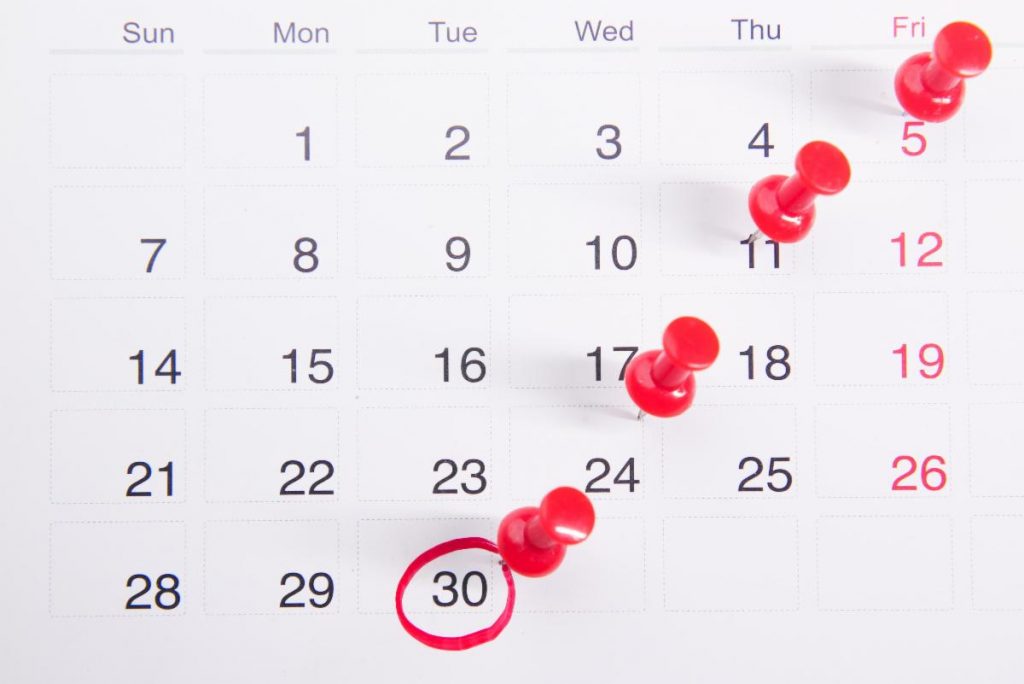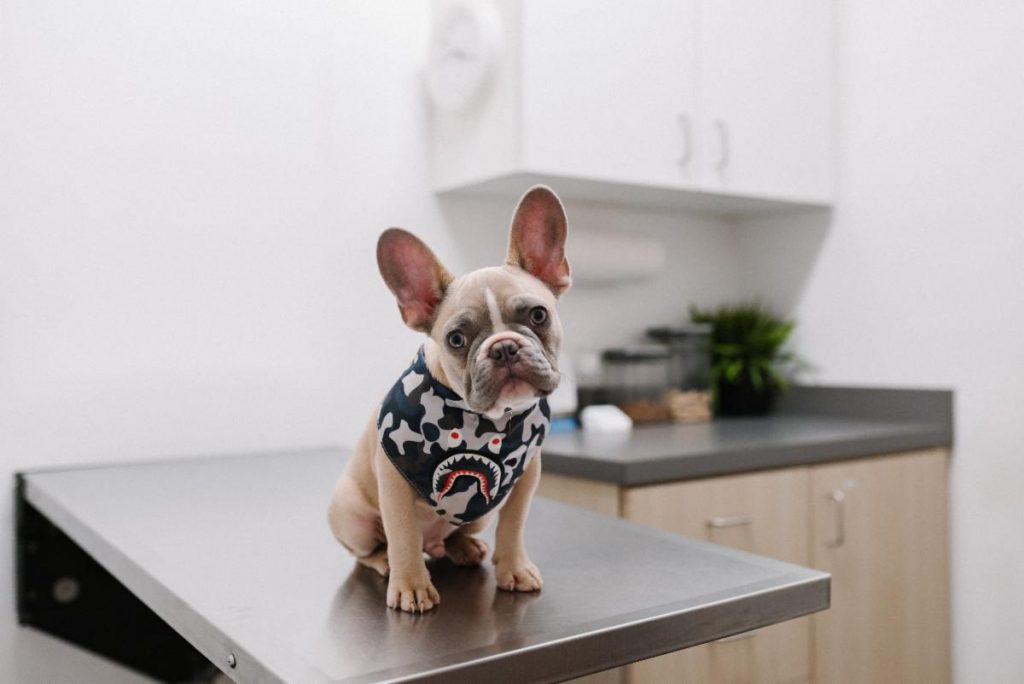It was so out of character for me, I could hardly believe it.
Real life experience was contradicting several of my most unshakeable core beliefs about myself and how I function in the world.
In fact, it took several minutes of multiple facts staring me in the face before I finally had to admit that I was the one who was utterly mistaken.
You see, I showed up for my annual physical this week twenty minutes early…and a day late.

I was so confident that I was right that I began pulling up the email and text reminders…
Only to see that they all said Wednesday and NOT Thursday.
I even played a voicemail reminder which I confessed I hadn’t listened to, assuming it confirmed what I had entered into my calendar.
It did not.
When I made the appointment––which was in January––I’d simply entered it into my calendar once––essentially carving it in stone in my mind.
Immediately thereafter, all contrary data went unregistered.
Confusion aside, this mishap did offer me an ironic finale to this month’s theme of Asking (Guided Visualization HERE.)
My mistake allowed me to consider yet another layer entirely.
Namely,
Are we asking the right questions?
And …
How often are we getting the wrong answers?

Indeed, sometimes the most seemingly sound question––however well-intended––is never going to provide illumination.
For example, I’ve often shared a quote attributed to Henry Ford, the automotive pioneer:
“If I had asked people what they wanted,
they would have said faster horses.”
The question wasn’t the right one and couldn’t be productive because those being asked had too limited a framework to answer.
Rather than just satisfying the current level of expectations, creative innovators have to work from their own inner inspirations.
That’s why asking a focus group questions doesn’t yield the answer to every problem, particularly artistic ones.
In fact, I defy you to think of any piece of art––book, painting, film, or music––that was created by a committee.
In general, most people only know how to complain, not how to create.
Asking them questions in order to solve problems usually only creates more problems.

A few weeks ago I learned that there’s an upscale mini-market three blocks away that’s totally dog-friendly.
It’s a perfect outing for Vlad and my afternoon snacks.
Given the length of my time in NYC, particularly when it comes to such things as apartment rentals and pricing in boutiques, I’ve mostly become immune to sticker shock.
This week though, as I paid and put the handful of items in my bag, I was thrown off by the total.
I shrugged, resigned at the high cost of urban living, and was about to leave the store but decided to question things instead.
I remarked to the clerk that the total seemed particularly high.
Sure enough, she had unknowingly charged me for $27 worth of allergy medications that the customer before me was about to buy before realizing he needed something else.
Not needing to subsidize a stranger’s healthcare, I’m glad I asked.
Ultimately, $27 towards Vlad’s College Fund might not be significant, but moving beyond my resistance about asking potentially awkward questions always is.

Years ago, when I was busy going to endless meetings about screenwriting projects, I learned a vital lesson.
Like all creatives, you’re hoping the meeting’s been set up so that everyone can give you a round of applause in person, only pausing to wipe away tears from how much your work has moved them all.
Instead, most often any praise is mere foreplay leading not to rapturous lovemaking but to brutal dissection instead.
In one particularly grueling meeting, a well-meaning executive (someone I genuinely liked), launched into an alternative third act plot resolution complete with a climactic gun-fight ending, all of which he came close to acting out.
Another time, a fledging producer went through a script and simply used a red sharpie to cross out every scene with a character, obliterating his entire (fictional) existence.
Fortunately, through gritted teeth and some form of “Serenity Now!’ mantra, I had enough perspective to know that they were identifying real problems.
Yes, the first project’s ending wasn’t satisfying.
Yet what it needed was some quiet psychological resolution, not a blood bath.
And for the second project, the character the producer wanted to eliminate entirely rather than being erased from the page actually needed several more scenes to make sense.
In each case, my audience may have been asking the right questions…but they were coming up with terrible answers.

The receptionist at my doctor’s office was surprisingly non-judgmental.
He even suggested––and this is slightly uncanny since I’m reading a lot of this kind of thing lately––that perhaps a parallel universe version of myself had made the other appointment.
Even so, rescheduling threatened to be a mini-nightmare.
Since moving to Bushwick, I’ve kept my Upper West Side doctors.
Since I really don’t like leaving Vlad or my apartment except when absolutely necessary, it feels truly burdensome to make the trek from borough to borough.
More importantly, it took 3 months to get the physical appointment in the first place and so––unless my doctor could squeeze me in––I’d have to take the next available slot…in mid September.
Adding to the mishegoss, if the doctor could somehow squeeze me in that morning, since I was in the system from yesterday, it wasn’t letting the receptionist sign me up for the same service again.
Though trying to be helpful, the receptionist confided, “Honestly, I wouldn’t get your hopes up.”

My other major activity of the week has been Beta Testing our new wellness app, something we want to roll out ASAP.
(Please stay tuned…)
We’ve enrolled small groups of friends and colleagues to test for technical snags and user-friendliness.
I’m mostly thrilled with the results––there are still a few annoying little glitches that the tech team must resolve––but once again I’m reminded of how easy it is to fall victim to some form of “typo blindness,” and I’m not just talking about scrambled letters on the screen.

This article in Wired explains that the reason typos happen is not because of carelessness or lack of intelligence but because our brains are performing complex tasks on a high level.
According to the study:
“When we’re proofreading our own work,
we know the meaning we want to convey.
Because we expect that meaning to be there,
it’s easier for us to miss when parts (or all) of it are absent.
The reason we don’t see our own typos is
because what we see on the screen
is competing with the version that exists in our heads.”
That’s exactly what I found most interesting about the Beta Testing: astonishingly, we forgot one of our most important features, mostly because it already existed inside our mind’s final version.
That’s why we needed fresh eyes.
Only through new vantage points could our omissions be seen and exposed, all via newcomers asking the right questions.

Through some set of mini-miracles, my doctor was able to see me that morning.
Ironically, it was the shortest time I’ve ever waited in her office.
In fact, I was a little startled at how smooth the process was, particularly since just three minutes before I was told I’d probably have to wait until September to try again.
I was also taken by the fact that the screensaver when I entered the exam room said:
“If in Doubt, Reach Out.”
I’m not sure what health issue it related to, but it did underscore the value of Asking.
We live in a world with constant missed connections.
Sometimes clerks mistakenly charge you for other people’s medication.
Or we show up on the wrong day for an annual physical.
The more high-powered and intense our engagement is, the more we’re blind to our own typos.
And, as I’ve learned, so often you might be asking the wrong people for answers to the right questions.
Amanda Palmer is right: Asking is Indeed an Art (and a very tricky one at that.)
And like any art, it requires––and only rewards–-constant practice.
Namaste for Now,

